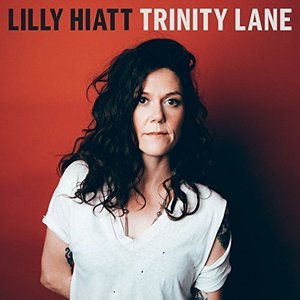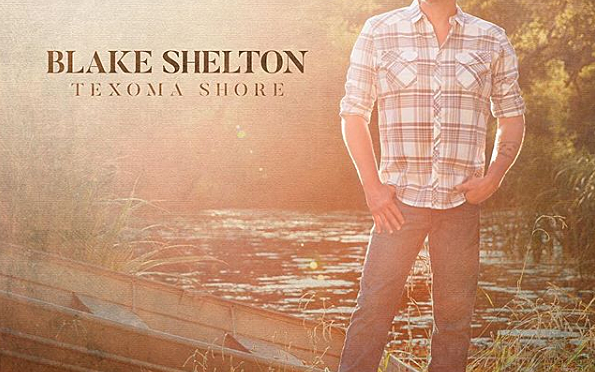Rating: 7/10
Since there’s only one new album I even care about listening to this week, it seems that now would be a good time to start clearing albums from the back burner, especially since we’re getting near the end of 2017, and everyone seems to be working on those infamous lists. And the first one I have to get to is the latest record from Lilly Hiatt, released back in August and one of the most fascinating records I’ve heard this year.
The interesting thing about this album is it’s a mood record; no, not in the sense of say, the latest records from Sam Outlaw or Willie Nelson, not slow and easy and relaxing. And not in the sense of something like the Shinyribs album either, where you have to be in the mood to not take anything too seriously in order to really enjoy it to the fullest. Trinity Lane is an emotionally charged affair, a breakup record that captures all the ups and downs and in-betweens felt during that period, and just as Lilly Hiatt had to be in a certain head space to create it, you have to be in a certain mood to appreciate it. I’ve given this one many listens before forming my final opinion, and my conclusion is that if you’re happy, in a generally good mood, this album goes down to a 5 or a 6. It’s when you can empathize with Lilly and understand somewhat the emotional state from which she’s writing and singing that you really begin to appreciate this album.
As I say, this is a breakup record, and the beauty of it is that it manages to detail all the different emotions, even contradicting ones. For example, she’s apologizing for being, in her own words, a bitch on “The Night David Bowie Died,” yet saying that she gave the relationship her all in “Everything I had.” Here, she seems to deny any responsibility she might have claimed in the former song. Sometimes you see her trying to move on and fix her own problems, like in the title track, and other times, she’s emotionally out of touch and obsessing over her ex, as told in the song “Different, I Guess.” She seems heartbroken over the breakup often, but at other times, she seems to embrace freedom. “Records,” one of the album’s standouts, details how music can help us through things like this, and Hiatt states in that song, “I’ll take lonely if it means free.” The biggest strength of this album is that it depicts all these different stages of dealing with the breakup; real life is like that, and sometimes our emotions change daily. I’m sorry Lilly Hiatt had to go through all this to make this record, but it produced some truly cool and interesting art.
That said, the album as a whole is more interesting than some of the songs. A few of them stand out individually, and this is one of the rare times I’ll list the standout tracks for the album at the bottom because if you don’t choose to listen to the entire thing, some of the songs don’t stand as well on their own. “I Wanna Go Home” is a good example of this, as she’s traveling around searching for answers. It adds a good angle to the overall story, but it’s kind of forgettable on its own. “Different, I Guess” is also vital to the story, but the melody is just strange, and she tries to cram a whole bunch of words into the chorus that shouldn’t fit there which makes it one of the more awkward tracks. “All Kinds of People” is pretty forgettable too, as it doesn’t really flatter her voice and is done better by other songs on the album.
But there are also moments on this album that manage to stand out even apart from the overarching story. The aforementioned title track can get stuck in your head quite easily, as well as “The Night David Bowie Died.” It’s easy to relate to these as well, and you feel a bit less like an observer and more like you share a common ground with Hiatt on these tracks. “Sucker” and “So Much You Don’t Know” create a great moment toward the end of the record, as Lilly veers more into the territory of self-reflection, wistful that she didn’t get to show her ex parts of her life that were important to her. In the latter, she’s wishing he asked about her, saying that she always was the one inquiring about his life. You get the sense that as the album progresses, she’s realizing the issues that had been present in the relationship. These two tracks stand out above the overarching theme as well because again, they are more universally relatable and not just unique to Lilly’s situation. We all want to share certain parts of ourselves with someone and have them care enough to want to know those details about us.
This is a fascinating record and has been easily the hardest thing for me to assign a rating to in 2017. The album as a whole is going to appeal to those who like darker, more emotional music, and if you’re not in the right mood to enjoy it, I would recommend just listening to specific songs. It’s also not strictly country; rather, it falls into the Americana realm, so if you are looking for more traditional stuff, this probably won’t be your thing either. “So Much You Don’t know” is pretty country, but then again, “The Night David Bowie Died” isn’t even close. So it’s not necessarily an album that I think everyone reading this will appreciate, but for the right audience, it’s quite a good one, and there are some great songs that many of you will enjoy regardless.
Standout Tracks: “Trinity Lane,” “The Night David Bowie Died,” “Records,” “Imposter,” “Sucker,” “So Much You Don’t Know”




